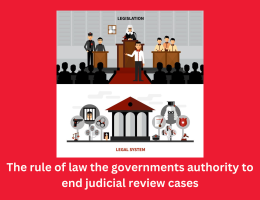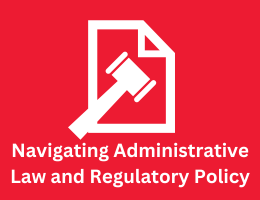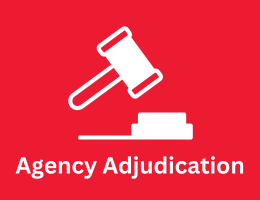
Exploring Administrative Discretion: Balancing Authority and Accountability
- By admin --
- Thursday, 07 Mar, 2024
Administrative discretion, which allows organizations to interpret and enforce guidelines and rules in methods that may be specific to particular situations, is a sizeable topic in administrative regulation. This examine examines the utility, constraints, and governance ramifications of the complicated topic of administrative discretion. Important subjects consist of using discretion, the potential for abuse, and the function of courts in assessing discretionary decisions.
Introduction to Administrative Discretion
Administrative bodies has a superb deal of authority to apply and put in force legal guidelines and policies inside their specific spheres of influence. Agencies possess the capacity to use each discretion and flexibility at the same time as imposing guidelines, sporting out enforcement moves, and making choices based totally on administrative judgment. Businesses need discretion to alter to converting conditions and satisfy governmental targets, but it also raises questions of duty, transparency, and capacity abuse.
Scope of Administrative Discretion
Administrative discretion refers to a wide variety of decisions and actions made through organizations throughout the route of their commercial enterprise. This may consist of:
- Interpreting statutory provisions: Agencies are frequently empowered to provide rationalization and fill within the blanks with a view to nicely carry out the legislative purpose.
- Regulation implementation: The interpretation and application of guidelines, inclusive of the willpower of the quantity and breadth of regulatory requirements, are left to the groups' discretion.
- Enforcement movements: Whether and how to put in force legal guidelines and policies, which includes setting priorities for enforcement complaints, achieving settlements, and making use of fines or consequences, are selections left to the companies' discretion.
- Policy choices: Businesses use rulemaking, steering files, and other administrative activities to make decisions on coverage by means of balancing competing interests and coverage possibilities.
Administrator Discretionary Limits
Even at the same time as administrative discretion is critical to the manner administrative businesses operate, it is confined. Limitations on the use of discretion serve to make sure equity and duty via systemic and criminal constraints. Among the key laws governing administrative discretion are:
- Statutory and regulatory constraints: Agencies have to observe the tips set forth via law and feature inside the parameters in their statutory and regulatory jurisdiction.
- Judicial overview: In order to make sure that agency moves are reasonable, compliant with statutes and the constitution, and valid, courts are essential in comparing the use of administrative discretion.
- Limitations imposed by way of the charter: Administrative sports have to adhere to the standards of the charter, including equal protection, due system, and the non-delegation concept, which forbids the transfer of legislative authority to administrative bodies.
- Abuse of discretion: There may also be legal consequences if the employer abuses its discretion in a reasonable, legal, or arbitrary way If the organization's choice is arbitrary, unreasonable, or it does not stand that it is entirely appropriate to give notice now, courts have the right to override the selection process.
Role of Courts in Reviewing Administrative Discretion
Judicial evaluation features as an vital mechanism for monitoring administrative discretion, making sure that companies stay inside their targeted electricity and observe felony and procedural mandates. Depending on the character of the disagreement and the extent of recognize given to enterprise competence, courts use exclusive requirements of scrutiny while assessing enterprise judgments. Important judicial evaluation tenets include:
The arbitrary and capricious fashionable requires courts to assess corporation acts to envision if they're reasonable, properly-reasoned, and sponsored by using a sufficient amount of proof. Although courts recognize the authority of agencies, they have got the power to reverse judgments which are deemed to be unlawful, arbitrary, or capricious.
Substantial proof widespread: When evaluating whether the organization's conclusions are subsidized by using full-size proof in the administrative record, courts use the full-size proof standard in real determination cases. Courts will opposite corporation judgments that aren't backed via sizeable proof or that move against the burden of the evidence, but they do now not reweigh the evidence.
If the law is uncertain, courts have the strength to just accept handiest agency interpretations of rules and guidelines, specially while the agency has specialised understanding. The degree to which courts deliver weight to organisation reviews is decided with the aid of making use of deference requirements which includes the Auer and Chevron deference.
Conclusion
The potential of administrative corporations to successfully accomplish coverage goals and regulate to complex regulatory settings is essentially depending on their use of administrative discretion. Nonetheless, the right to exercise discretion ought to be weighed against the values of legality, duty, and openness. Stakeholders can traverse the complexities of administrative law and inspire the proper use of governmental authority with the aid of understanding the extent and boundaries of administrative discretion as well as the position of courts in reviewing discretionary judgments.





